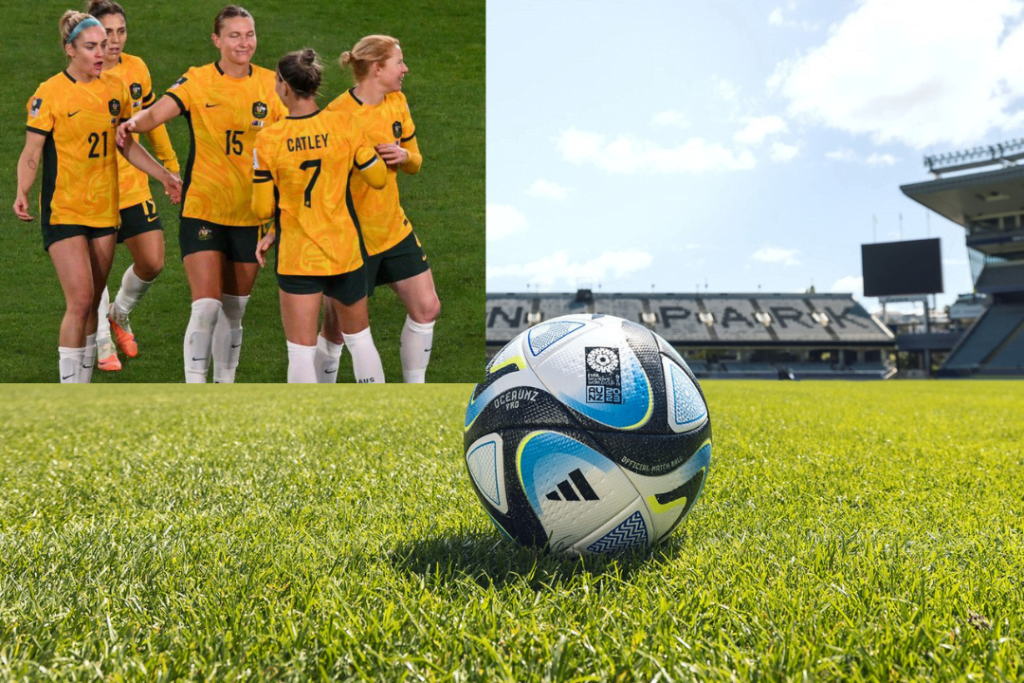FIFA Women’s World Cup 2023: Co-hosts Australia and New Zealand kicked off their respective FIFA Women’s World Cup openers in front of record-breaking crowds following a gunshot incident in Auckland.
A shooting near the hotel where the Norwegian team was staying in Auckland resulted in three fatalities and six injuries. Co-hosts Australia and New Zealand began the ninth Women’s World Cup on Thursday with a triumph in front of a record-breaking crowd. The shooter was reportedly one among those slain, according to the police, and things are now under control. Chris Hipkins, the prime minister of New Zealand, told the public that there is no danger to the country’s security.
The Haka battle dance, which honors the traditional Maori culture, was followed by an outstanding goal by Hannah Wilkinson to seal Norway’s 1-0 victory in the inaugural event. 42,137 spectators attended the game, shattering the previous attendance mark for an international football event that the nation had hosted.

Australia and New Zealand kicked off the ninth FIFA Women’s World Cup
Authorities have increased the number of police officers and security guards outside the stadium in Auckland, New Zealand’s largest city, in response to the shooting incident. Student Isabella Biortegui, 22, who was present for the opening ceremony, expressed relief at the strong police presence, saying it made her feel safer.
“I’m quite happy. Crazy energy is present. FIFA, the organization that governs football, released a statement to support the teams involved in the incident and to express that “everyone seems to be thrilled to be here.”

Australia’s Matildas lost to Ireland 1-0 in the Women’s World Cup opening in front of 75,784 spectators at Sydney’s Stadium Australia, breaking the previous attendance mark for a women’s football game in the nation. Prior to the game, they suffered a setback when Sam Kerr, the star striker and the face of the competition, was forced to withdraw due to an ankle injury.
Up until 1970, women’s football was prohibited by law in England and many other nations, but in recent years, the number of female players and supporters has grown significantly on a global scale.
Professor Tracy Taylor, a sports management specialist at RMIT University in Melbourne, is hoping that the competition would significantly increase the number of women who play for Australian football clubs at the grassroots level.
However, there are still differences between men’s and women’s football in many nations, especially in terms of pay and working conditions. The recent Matildas film highlighted the “disrespect” shown to women’s sports while stressing the difficulties they endure, including playing on artificial fields and receiving less money for World Cup victories than men.
In Australia, there is a huge demand for tickets, and devoted supporters often book seats for home games months in advance. Fatma Samoura, the secretary-general of FIFA, recognized that ticket sales for earlier tournaments in France were far greater than in New Zealand.
Grant Robertson, the sports minister for New Zealand, advised his countrymen to purchase the few remaining tickets for the early games because they typically wait until the last minute to purchase tickets when games are played there. He highlighted that buying tickets for the games shouldn’t be left until the last minute.


Aradığım her şeyi bu sitede buldum. Hem görsel kalite hem iletişim açısından çok başarılılar. Ankara escort arayanlara öneririm.
продать аккаунт аккаунты с балансом
маркетплейс аккаунтов гарантия при продаже аккаунтов
купить аккаунт с прокачкой купить аккаунт с прокачкой
профиль с подписчиками магазин аккаунтов социальных сетей
купить аккаунт маркетплейс аккаунтов
маркетплейс аккаунтов соцсетей услуги по продаже аккаунтов
Profitable Account Sales Gaming account marketplace
Account marketplace Account Selling Platform
Account trading platform Profitable Account Sales
Purchase Ready-Made Accounts Account marketplace
Secure Account Sales Buy Account
Account market Buy and Sell Accounts
Account Buying Platform Buy accounts
Account Buying Platform Verified Accounts for Sale
Database of Accounts for Sale Profitable Account Sales
Sell Pre-made Account https://socialmediaaccountsale.com
account trading website for buying accounts
secure account sales account trading service
account acquisition find accounts for sale
find accounts for sale https://buycheapaccounts.com
ready-made accounts for sale buy pre-made account
buy pre-made account https://socialaccountsdeal.com
account exchange service online account store
account store account store
buy and sell accounts account store
website for selling accounts account market
accounts market sell account
account acquisition account catalog
account buying service account sale
accounts for sale accounts for sale
account trading account purchase
secure account purchasing platform https://buy-social-accounts.org/
account market sell accounts
account sale account exchange service
accounts marketplace buy accounts
account buying platform social media account marketplace
account exchange buy pre-made account
account exchange service account marketplace
sell account accounts for sale
purchase ready-made accounts guaranteed accounts
sell pre-made account https://accounts-offer.org/
guaranteed accounts https://accounts-marketplace.xyz
account selling service https://social-accounts-marketplaces.live
accounts for sale https://accounts-marketplace.live
account trading platform https://social-accounts-marketplace.xyz
accounts marketplace https://buy-accounts.space
account selling service https://buy-accounts-shop.pro
account store https://buy-accounts.live/
sell pre-made account https://accounts-marketplace.online
account acquisition https://social-accounts-marketplace.live
online account store https://accounts-marketplace-best.pro
продать аккаунт akkaunty-na-prodazhu.pro
продать аккаунт https://rynok-akkauntov.top/
покупка аккаунтов kupit-akkaunt.xyz
продажа аккаунтов akkaunt-magazin.online
покупка аккаунтов https://akkaunty-market.live
купить аккаунт kupit-akkaunty-market.xyz
магазин аккаунтов akkaunty-optom.live
биржа аккаунтов online-akkaunty-magazin.xyz
площадка для продажи аккаунтов https://akkaunty-dlya-prodazhi.pro
продажа аккаунтов https://kupit-akkaunt.online
clomiphene medication get cheap clomid online order generic clomiphene without rx how can i get clomid price buy cheap clomid can i purchase generic clomiphene without rx generic clomiphene online